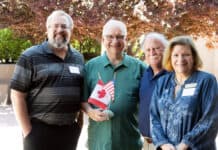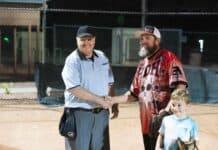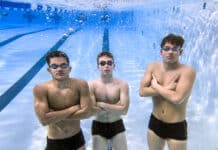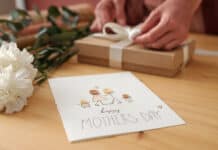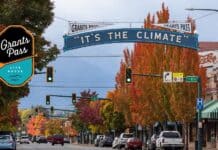In the 1970s, when many Americans were looking at the dawn of the home computer, video games and the microwave oven, Norma Cobb and her family turned to Alaska.
Cobb, her husband Lester and their five children headed north to Alaska to follow their dream of claiming land under the Homestead Act. They were one of the last people to do so in the 49th state.
The only land available at the time was in the Minook Valley north of Fairbanks near the Arctic Circle. Undaunted, the Cobbs forged ahead, living in Fairbanks during the winter the first two years and in a tent on the 80 acres during the summer months as they built their cabin.
“Our first cabin had vertical logs because I wasn’t strong enough to help Lester lift them. The kids helped chink the spaces with tundra,” Cobb said as she relaxed in her current home in the Village of Oak Creek. “It fell with the first snow, but we just rebuilt.”
When Cobb moved to Alaska she was 27 years old and Lester was 21. The children ranged in age from Norma Cobb’s 9-year-old daughter to a 1 year old. Lester Cobb looked for work and was gone often. Both Lester and Norma Cobb worked on the Trans-Alaskan Pipeline, Lester driving a truck and Norma working in the kitchen.
“The men didn’t like me there much,” she said and smiled. “The first five years were the toughest. That’s when we learned everything. We were tenderfeet.”
According to the Homestead Act, a person must “prove up” on the property, which means they must make improvements to the land within five years before they could file for a deed. Most often a house was considered enough, according to the act.
While most families hopped in the car and went to the grocery to buy food, it was a little more involved for the Cobbs. The nearest town was 19 miles away. They also shopped in Fairbanks, 150 miles south, about twice a year. Otherwise, they hunted moose and bear, which were plentiful in the woods where their property was located.
“We never went anywhere, even to the outhouse, alone or without a gun. Up there, bears rule,” Cobb said.
Everyone, including the children, helped. When they hunted, the family butchered the meat for food and used other parts to make items like hats and gloves. Even the teeth and claws were fashioned into jewelry, which they sold. Cobb still wears a necklace with a bear claw.
“Up there nothing went to waste,” she said.
After the Cobbs fulfilled the Homestead Act requirements, they started gold mining and did quite well finding nuggets, some as big as one-half ounce or more. A few years later they built a bigger cabin across the creek.
To keep clean, they built a shower outside. They ran water from the creek into a 55-gallon drum hung over a fire and piped the water downhill to the shower stall. They only used it during the summer months, though.
During the winter, the family traveled by dog sled. They had Siberian huskies. At night they read, played games and Cobb taught her children through correspondence school. They’d read the Bible and discuss the readings. There wasn’t a church anywhere close.
All of the children grew up on the homestead. One son still lives in Alaska and works on an oil pipeline, she said.
“For 20 years, I had no conveniences except propane lights and stove. Toward the end of our time up there, we got electricity and a telephone. It was like Christmas,” she said.
 Cobb left Alaska five years ago after 31 years in the wilderness. She and Lester divorced and she didn’t want to be alone in the wild. They had sold some of the land and split the rest. Cobb first moved closer to family in Nebraska where she grew up, but said the weather was intolerable. She had traveled through Sedona and the Village of Oak Creek and decided to try it here.
Cobb left Alaska five years ago after 31 years in the wilderness. She and Lester divorced and she didn’t want to be alone in the wild. They had sold some of the land and split the rest. Cobb first moved closer to family in Nebraska where she grew up, but said the weather was intolerable. She had traveled through Sedona and the Village of Oak Creek and decided to try it here.
“I miss the Northern Lights and my cold, cold clean water out of the creek, and the great mountain views we had in all directions. I visit every year with the kids, though. Alaska was a paradise and a land of extremes,” she said. “Summers were hot, up to 90 degrees, and the coldest it ever got was 80 below. The most snow we saw up there was 18 feet.”
While homesteading in Alaska is behind her now, Cobb said she has no regrets.
“I’d do it all over again. So would my kids. They missed having friends but realize they’ve had the opportunity to do things most people will never have,” Cobb said. “A lot of people dream of a life like we had.”
Cobb wrote a book about her experience. “Arctic Homestead” was published in February 2003.



